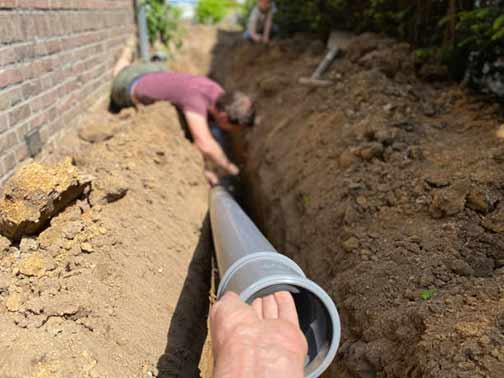
When should you replace your sewer line?
Have you ever asked yourself this question? If you are like most homeowners, the answer is probably a big NO. Every homeowner knows their sewer line will need to be replaced at some point, but most never think about it.
That is a natural response because of the hefty cost of replacing a sewer line, says Sunnyside Management experts. Yet this is not a question you can avoid asking yourself. It makes more economic sense to ask this question and answer it adequately.
Why is that?
Knowing the true condition of your sewer line and how many months or years it has left can help you save money. That is because you understand when not to spend money on repairs that may prove ineffective and costlier in the long run.
Secondly, you can plan and prepare in advance. Instead of being forced to hurriedly replace the sewer line because you have been surprised by a sewer line emergency in your home, you can preempt issues in the system and replace the sewer line on your terms.
Lastly, you adopt a more holistic approach toward sewer line maintenance. Every decision you make is against the backdrop of your sewer line’s age and the impending replacement date. You can objectively weigh the pros and cons of every maintenance choice.
What are the signs that it is time to replace your sewer line?
Signs that it is time to replace your sewer line
- The age of the sewer line
How old is your existing sewer line? It is not always easy to answer this question unless you have owned your home for several decades. The sewer line age and material are key factors when replacing it. Cast iron pipes last 70-100 years, clay pipes have a service life of 50-60 years, and PVC pipes last over a hundred years.
- Evidence of extensive physical damage
Just because a sewer line has leaks, breaks, and cracks does not mean it is time to replace it. If the problems are not present across the entire length of the sewer line, there is no need to replace the line. If the issues are present in only a small section of the sewer line, you may only need to do a partial sewer line replacement.
- Frequency of sewer line problems
If you constantly experience sewer line problems in your home, it may be time to replace it. A sewer line nearing or past retirement age will suffer from frequent clogs, leaks, and backups. The cumulative cost of fixing these problems in one year may be more than enough to initiate the process of replacing the sewer line.
- Tree root intrusion
If there is evidence of widespread tree root infiltration into the sewer line, it is probably because the sewer line material has become weak. Fixing the immediate problem of invading tree roots will not solve the deeper issues in the sewer line. The problems will only worsen with time, costing more and more money to fix.
- Ground movement
If your home has recently been subjected to soil shifts, sinkholes, and earthquakes, your sewer line is probably compromised already. Ground movements change the soil structure around a sewer line, resulting in sewer line bellies, cracks, leaks, and other issues. If the soil has been significantly altered, it is only a matter of time before the sewer line fails.
Before you replace your sewer line
- Get professional assessment
It involves a sewer camera inspection, among other things. A professional plumber can look at the sewer line to help you assess the extent of damage and advise you on the right solutions to the problems in the line. A professional plumber will also give you a fair estimate of how long you can expect the sewer line to last before it fails.
- Choose a sewer line replacement method
The two options for replacing a sewer line are the traditional method and the trenchless pipe replacement method. Traditional methods involve excavation; you must dig up the old pipes to lay the new ones. Trenchless methods involve minimal digging or none at all. Trenchless repair methods are faster and more affordable. However, traditional methods are more thorough and longer-lasting.
All these steps are easier when you have a reliable, professional plumber working with you. The experience and know-how of a trusted plumber is an indispensable asset when replacing your sewer line. A good plumber can help you avoid mistakes that will cost you in the future.


